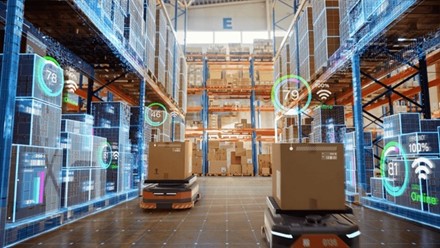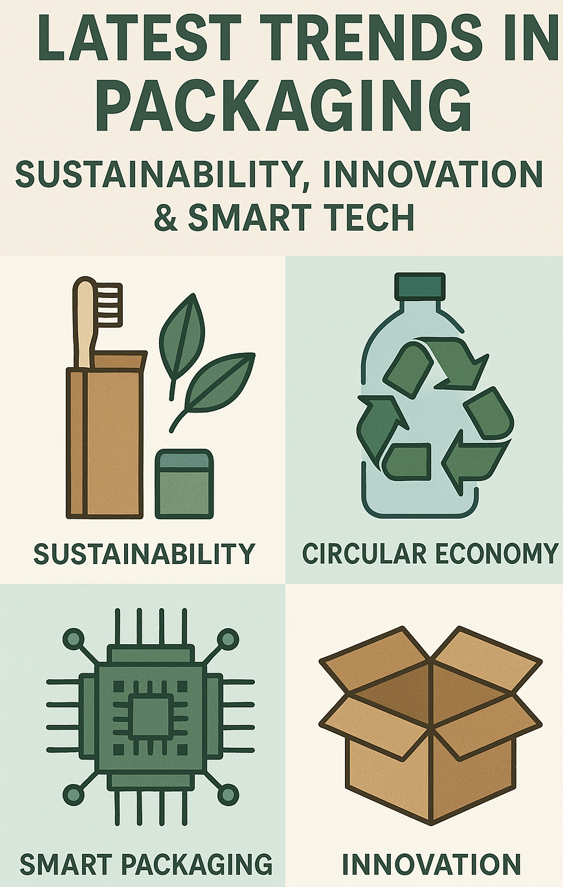
The Future of AI in Packaging: 2025 Outlook and Innovation Case Studies
The Future of AI in Packaging: 2025 Outlook and Innovation Case Studies
As we approach 2025, artificial intelligence and advanced technologies are revolutionizing the packaging industry in unprecedented ways. From smart materials to automated quality control, the convergence of AI and packaging is creating opportunities for sustainability, efficiency, and enhanced consumer experiences. Let's explore the key trends and examine real-world case studies of innovative product development.
1. Smart Packaging with Embedded AI
The integration of AI-powered sensors and intelligent materials is transforming traditional packaging into interactive consumer touchpoints. Companies are developing packages that can monitor product freshness, authenticate goods, and provide real-time information to consumers and supply chain managers.
Case Study: FreshTrack's AI-Enabled Food Packaging
FreshTrack, a food packaging startup, has developed an AI-integrated film that changes color based on food spoilage. Their proprietary algorithm processes data from embedded nano-sensors to detect subtle chemical changes in perishable foods.
Key developments:
⦁ Machine learning algorithms trained on vast datasets of food degradation patterns
⦁ Integration with smartphone apps for consumer alerts
⦁ Reduction in food waste by up to 30% in pilot programs
⦁ Expected market release: Q2 2025
2. Sustainable Design Optimization
AI algorithms are becoming crucial in designing packaging that minimizes material usage while maintaining structural integrity. Machine learning models can now generate and test thousands of design variations to find the optimal balance between sustainability and functionality.
Case Study: EcoPackAI's Material Reduction Initiative
EcoPackAI has partnered with major beverage companies to redesign plastic bottles using AI-driven optimization.
Results:
⦁ 18% reduction in plastic usage
⦁ Maintained structural integrity under various conditions
⦁ Carbon footprint reduced by 25%
⦁ Implementation timeline: Early 2025
3. Quality Control and Defect Detection
Advanced computer vision systems powered by deep learning are revolutionizing quality control in packaging production lines.
Case Study: VisionTech's AI Inspection System
VisionTech's AI-powered inspection system has been implemented in several major packaging facilities.
Performance metrics:
⦁ 99.9% defect detection rate
⦁ 80% reduction in manual inspection costs
⦁ 50% decrease in customer complaints
⦁ Real-time adjustment capabilities
4. Personalized Packaging Experiences
AI is enabling mass customization of packaging designs while maintaining production efficiency.
Case Study: PersonaPack's Dynamic Design System
PersonaPack's AI system creates unique packaging designs based on customer data and preferences.
Features:
⦁ Real-time design generation
⦁ Integration with e-commerce platforms
⦁ Cultural and regional design adaptation
⦁ Launch date: Q3 2025
5. Supply Chain Optimization
AI algorithms are improving packaging logistics and inventory management through predictive analytics.
Case Study: LogiSmart's AI Forecasting Platform
LogiSmart's system optimizes packaging material inventory and distribution.
Achievements:
⦁ 40% reduction in warehousing costs
⦁ 25% improvement in delivery efficiency
⦁ 15% decrease in packaging waste
⦁ Full implementation expected by mid-2025
Future Implications and Challenges
As we move through 2025, several key considerations will shape the industry:
1. Integration Costs: While AI solutions show promising ROI, initial implementation costs remain a barrier for smaller companies.
2. Data Privacy: As packaging becomes smarter, managing consumer data security becomes increasingly important.
3. Standardization: The industry needs to develop common protocols for AI-enabled packaging systems.
4. Workforce Training: Companies must invest in training employees to work alongside AI systems effectively.
Conclusion
The integration of AI into packaging is not just a trend but a fundamental shift in how we approach product protection, sustainability, and consumer engagement. As we progress through 2025, companies that embrace these technologies while addressing the associated challenges will be best positioned for success in this rapidly evolving industry.
While some of these innovations are still in development, the convergence of AI and packaging technology promises to create more sustainable, efficient, and intelligent packaging solutions that benefit both businesses and consumers.







